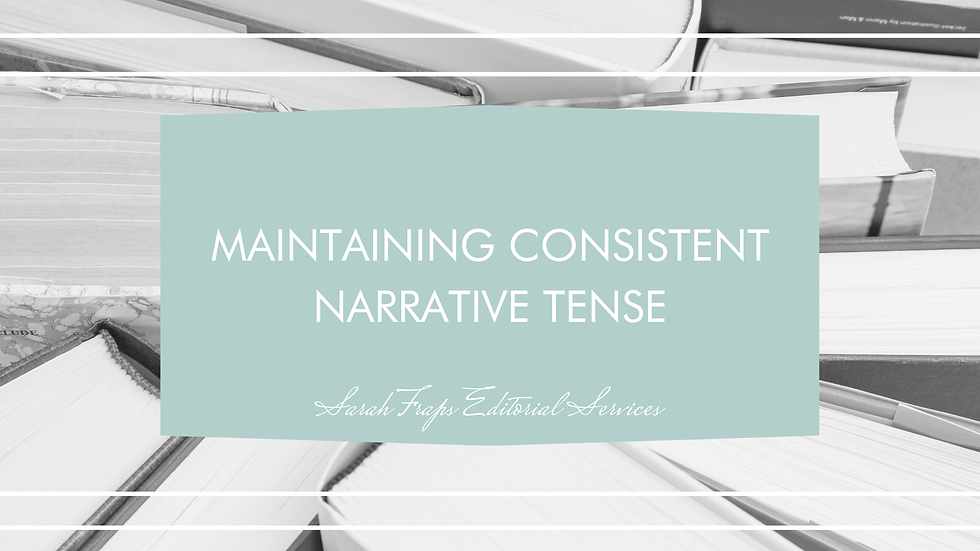Watch this space
- Sarah Fraps

- Aug 16, 2022
- 3 min read
Updated: Aug 23, 2022
Hi there!
As this is my first blog, an introduction seemed to be the way to start. Welcome to the blog!

My name is Sarah Fraps, and I am a fiction copy/line editor and proofreader. I started my career editing and proofreading academic theses and dissertations, as well as a bit of business copy here and there.
Then, as life will have it, I took a very long (seven year) detour into education. I had the absolute privilege of teaching Kindergarten students the foundational skills of reading and writing at a classical private school.
Like a lot of people, the pandemic changed a lot for me. At its height, my family knew we needed to make a change for balance, and I was beginning to feel a pull to get back to a dream I had held since first beginning my career: pursuing freelance fiction editing.
Long story short, here I am ready to help independent authors solve their most pressing problems (usually related to editing). I love interacting on social media and in Facebook groups. Perhaps that’s how you found me! I am so glad you did. I hope the experiences and knowledge I offer will help you along your journey to publication.
Since I don’t know you just yet, I’d like to do a quick dive into the services that editors offer for independent authors. It's not always a straightforward, linear process, which can often result in confusion along the way.
What are the stages of editing?
In a nutshell, a fiction manuscript should pass through the following editing stages:
1. A developmental (sometimes called structural, content, or substantive) edit: looks at the “big picture,” such as structure, plot, points of view, characterization, and pace. As part of this process, the editor may offer a manuscript critique or editorial assessment. Sometimes this critique will be done before the developmental edit.
2. A line-edit
3. A copyedit
4. Proofreading
Sometimes you’ll see steps two and three combined into one round of editing. Many copyeditors, myself included, have training in both. Any good, professional editor should be able to look at your manuscript and advise you on what stage of editing you need.
Not every author will need a developmental edit, but you really won’t know until you’ve had your manuscript critiqued. I highly recommend getting a basic assessment done once your story is complete. This will help guide your next steps. If you're having trouble getting your story down on paper, hiring a developmental editor will help you get a better idea of where your story is going and what you need to do to get it finished.
Line and copyedits are both sentence level editing. This is where I do most of my work. Line editing seeks to create a smooth, stylistic experienced for your reader. Line editors look for areas where wording can be tightened up and are mainly focused on clarity and flow. Copyediting is more mechanically focused, looking for areas where grammar, spelling, and punctuation mistakes break the reader out of the reading experience. Both types of editing seek to maintain an author’s style and voice while increasing readability.
Proofreading, in the most basic sense, is quality control. I’m a bit biased, but I think you’d be crazy not to have a proofreader give your manuscript proofs one final look-over before publication. With each round of editing, new errors can be introduced, and if an editor is honest, small mistakes and typos can be missed.
While no editor can guarantee a 100% error-free manuscript, proofreading can get you pretty close!
So where are you at with your writing? Is it time to seek out an editor? If so, contact me and tell me about what you're writing.
Not quite ready yet? Subscribe to my newsletter, and keep an eye on the Resources page for tips and tricks to support your writing and editing process.








Comments